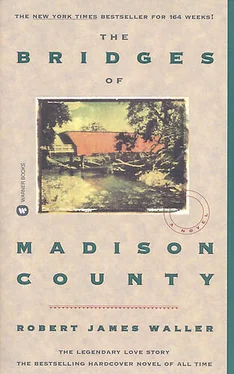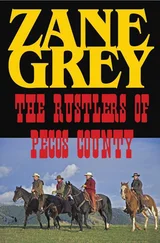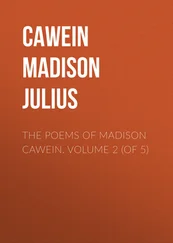Then he joined the words into phrases and posted those as well:
Too close to the fire.
I came from the East with a small band of travelers.
The constant chirping of those who would save me and those who would sell me.
Talisman, Talisman, show me your secrets. Helmsman, Helmsman, turn me for home.
Lying naked where blue whales swim.
She wished him steaming trains that left from winter stations.
Before I became a man, I was an arrow—long time ago.
Then there were the places whose names he liked: the Somali Current, the Big Hatchet Mountains, the Malacca Strait, and a long list of others. The sheets of paper with words and phrases and places eventually covered the walls of his room.
Even his mother noticed something different about him. He never spoke a word until he was three, then began talking in complete sentences, and he could read extremely well by five. In school he was an indifferent student, frustrating the teachers.
They looked at his IQ scores and talked to him about achievement, about doing what he was capable of doing, that he could become anything he wanted to become. One of his high school teachers wrote the following in an evaluation of him: “He believes that ‘IQ tests are a poor way to judge people’s abilities, failing as they do to account for magic, which has its own importance, both by itself and as a complement to logic.’ I suggest a conference with his parents.”
His mother met with several teachers. When the teachers talked about Robert’s quietly recalcitrant behavior in light of his abilities, she said, “Robert lives in a world of his own making. I know he’s my son, but I sometimes have the feeling that he came not from my husband and me, but from another place to which he’s trying to return. I appreciate your interest in him, and I’ll try once more to encourage him to do better in school.”
But he had been content to read all the adventure and travel books in the local library and kept to himself otherwise, spending days along the river that ran through the edge of town, ignoring proms and football games and other things that bored him. He fished and swam and walked and lay in long grass listening to distant voices he fancied only he could hear. “There are wizards out there,” he used to say to himself. “If you’re quiet and open enough to hear them, they’re out there.” And he wished he had a dog to share these moments.
There was no money for college. And no desire for it, either. His father worked hard and was good to his mother and him, but the job in a valve factory didn’t leave much for other things, including the care of a dog. He was eighteen when his father died, so with the Great Depression bearing down hard, he enlisted in the army as a way of supporting his mother and himself. He stayed there four years, but those four years changed his life.
In the mysterious way that military minds work, he was assigned to a job as photographer’s assistant, though he had no idea of even how to load a camera. But in that work, he discovered his profession. The technical details were easy for him. Within a month he was not only doing the darkroom work for two of the staff photographers, but also was allowed to shoot simple projects himself.
One of the photographers, Jim Peterson, liked him and spent extra time showing him the subtleties of photography. Robert Kincaid checked out photo books and art books from the Fort Monmouth town library and studied them. Early on, he particularly liked the French impressionists and Rembrandt’s use of light.
Eventually he began to see that light was what he photographed, not objects. The objects merely were the vehicles for reflecting the light. If the light was good, you could always find something to photograph. The 35-millimeter camera was beginning to emerge then, and he purchased a used Leica at a local camera store. He took it down to Cape May, New Jersey, and spent a week of his leave there photographing life along the shore.
Another time he rode a bus to Maine and hitchhiked up the coast, caught the dawn mail boat out of Isle au Haut from Stonington, and camped, then took a ferry across the Bay of Fundy to Nova Scotia. He began keeping notes of his camera settings and places he wanted to visit again. When he came out of the army at twenty-two, he was a pretty decent shooter and found work in New York assisting a well-known fashion photographer.
The female models were beautiful; he dated a few and fell partially in love with one before she moved to Paris and they drifted apart. She had said to him: “Robert, I don’t know who or what you are for sure, but please come visit me in Paris.” He told her he would, meant it when he said it, but never got there. Years later when he was doing a story on the beaches of Normandy, he found her name in the Paris book, called, and they had coffee at an outdoor café. She was married to a cinema director and had three children.
He couldn’t get very keen on the idea of fashion. People threw away perfectly good clothes or hastily had them made over according to the instructions of European fashion dictators. It seemed dumb to him, and he felt lessened doing the photography. “You are what you produce,” he said as he left this work.
His mother died during his second year in New York. He went back to Ohio, buried her, and sat before a lawyer, listening to the reading of the will. There wasn’t much. He didn’t expect there would be anything. But he was surprised to find his parents had accumulated a little equity in the tiny house on Franklin Street where they had lived all their married lives. He sold the house and bought first-class equipment with the money. As he paid the camera salesman, he thought of the years his father had worked for those dollars and the plain life his parents had led.
Some of his work began to appear in small magazines. Then National Geographic called. They had seen a calendar shot he had taken out on Cape May. He talked with them, got a minor assignment, executed it professionally, and was on his way.
The military asked him back in 1943. He went with the marines and slogged his way up South Pacific beaches, cameras swinging from his shoulders, lying on his back, photographing the men coming off amphibious landing craft. He saw the terror on their faces, felt it himself. Saw them cut in two by machine-gun fire, saw them plead to God and their mothers for help. He got it all, survived, and never became hooked on the so-called glory and romance of war photography.
Coming out of the service in 1945, he called National Geographic . They were ready for him, anytime. He bought a motorcycle in San Francisco, ran it south to Big Sur, made love on a beach with a cellist from Carmel, and turned north to explore Washington. He liked it there and decided to make it his base.
Now, at fifty-two, he was still watching the light. He had been to most of the places posted on his boyhood walls and marveled he actually was there when he visited them, sitting in the Raffles Bar, riding up the Amazon on a chugging riverboat, and rocking on a camel through the Rajasthani desert.
The Lake Superior shore was as nice as he’d heard it was. He marked down several locations for future reference, took some shots to jog his memory later on, and headed south along the Mississippi River toward Iowa. He’d never been to Iowa but was taken with the hills of the northeast part along the big river. Stopping in the little town of Clayton, he stayed at a fisherman’s motel and spent two mornings shooting the towboats and an afternoon on a tug at the invitation of a pilot he met in a local bar.
Cutting over to U.S. Route 65, he went through Des Moines early on a Monday morning, August 16, 1965, swung west at Iowa 92, and headed for Madison County and the covered bridges that were supposed to be there, according to National Geographic . They were there all right, the man in the Texaco station said so and gave him directions, just fairish directions, to all seven.
Читать дальше












